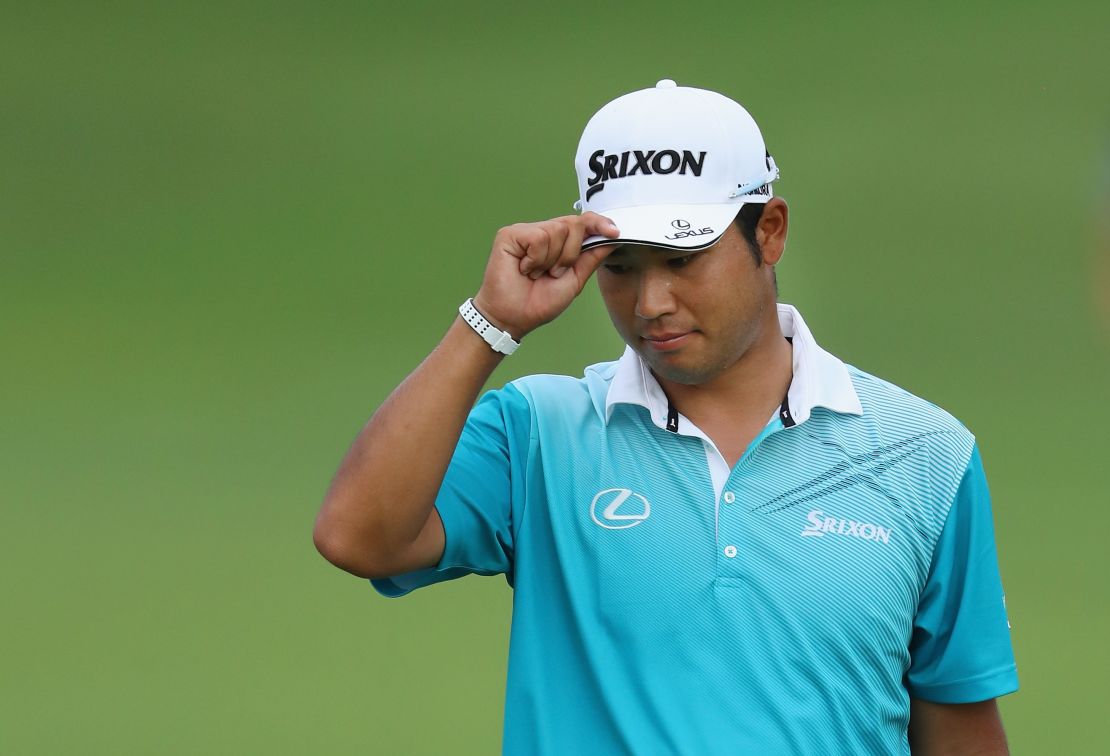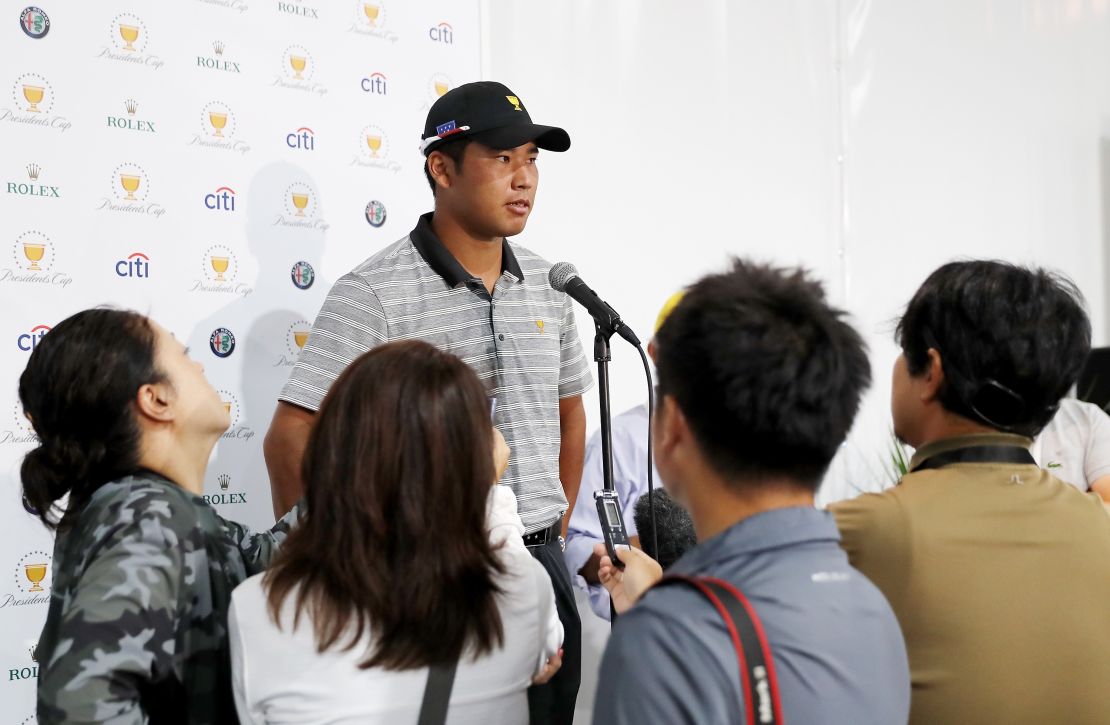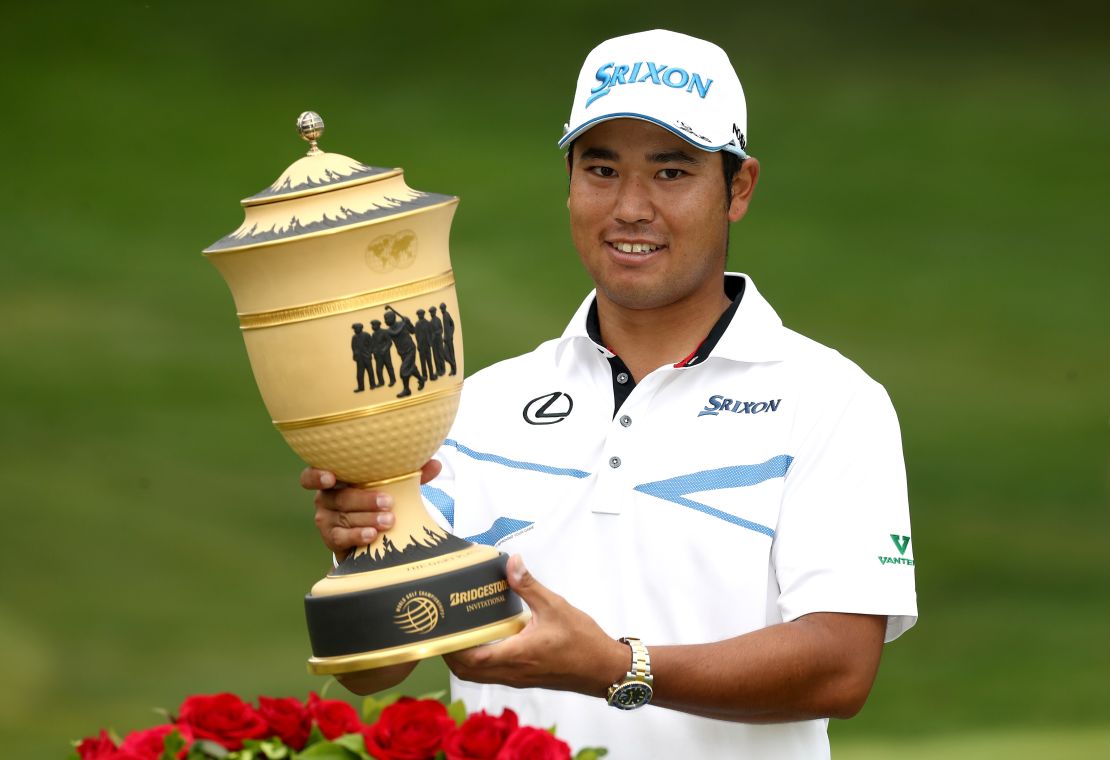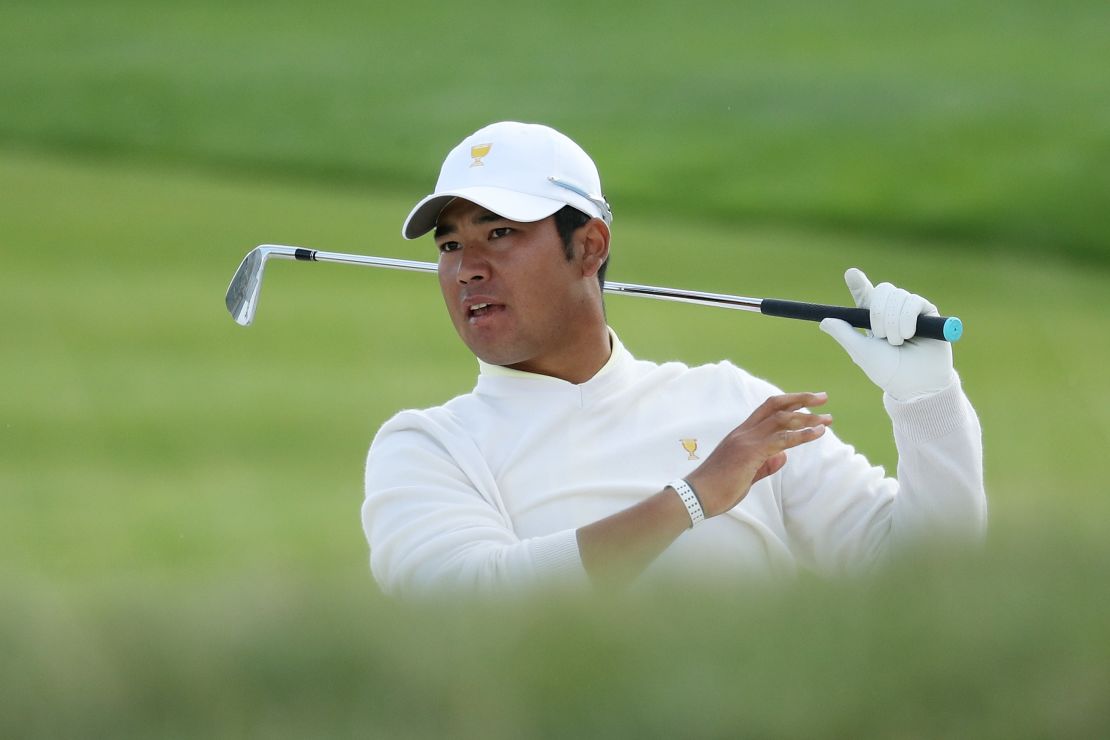Story highlights
Hideki Matsuyama to play with President Trump, Prime Minister Shinzo Abe
World No. 4 golfer bidding to win Japan's first major
He carries the weight of a nation on his shoulders, but beating US President Donald Trump at golf is not the real reason Japan expects so much of Hideki Matsuyama.
The world No. 4 golfer is set to play with Trump and Japanese Prime Minister Shinzo Abe when the American president visits Japan between November 5-7 as part of his Asian tour.
Matsuyama is Japanese golf’s latest hottest property, seemingly destined to become its first man to win a major tournament.
His recent results have elevated him to superstar status back home – some have likened him to Tiger Woods in his pomp – but Matsuyama also cuts something of a mysterious figure.
So little is known of the publicity shy 25-year-old that his fans and even the golf media were stunned when he announced in August he had got married at the start of the year and his wife had a baby girl in July.

Matsuyama explained that he hadn’t kept it a secret, just no one had ever asked him if he was married.
“He’s very quiet, he doesn’t show his emotions very much,” Andy Yamanaka, executive director of the Japan Golf Association and a member of the golf committee for the Tokyo 2020 Olympic Games, told CNN Sport.
“He’s not comfortable speaking about himself to people he doesn’t know, but he’s a nice guy, a smart guy and he has a sense of humor.”
READ: Matsuyama looking forward to ‘fun day’ with Trump
‘Expectations’
Matsuyama finished second in June’s US Open, only the second runner-up spot in a major by a Japanese man after Isao Aoki in 1980.
That took Matsuyama to second in the world rankings behind Dustin Johnson, and he followed it up with fifth at the US PGA in August, after having led with nine holes to play.
With five PGA Tour wins, including four in the last two seasons, Matsuyama’s recent results have done his talking for him. He was also fourth on the PGA money list for 2017, having earned $8.3 million in prize money.
“He’s probably one of the most respected athletes in Japan,” says Yamanaka, who has known Matsuyama since he was 17 or 18.
Still, his profile is much smaller than tennis player Kei Nishikori or colorful golfer Ryo Ishikawa, who made a big splash a few years ago.
“Matsuyama doesn’t have a particularly big media profile. He doesn’t particularly like doing interviews and he doesn’t really do many endorsements or anything,” says Andrew McKirdy, a Tokyo-based sportswriter for the Japan Times.
“A lot of people would’ve struggled to put a face to the name, but recently, because of the results he’s had, the general Japanese public, not necessarily just golf fans, have come to know who he is and now have expectations of him.”

‘Hype’
Introduced to golf at the age of four by his father, Matsuyama became the first Japanese amateur to compete at the Masters, in 2011. He turned pro two years later and was soon playing on the PGA Tour.
Based in America and with no English, he was accompanied by American Bob Turner, a Japanese translator to the likes of Tiger Woods and Seve Ballesteros, who went to university in Japan and is married to a Japanese woman.
“I am working on my English,” Matsuyama told reporters at the Open in July. “I think I am recognised a little more now in America but if I could speak good English more people would know my personality.”
On Tour, Matsuyama is followed by a regular Japanese press pack and a phalanx of often 20 or more photographers, who chart his every move from dawn until dusk.
“They literally follow every shot he hits, every day he plays in a tournament. Even with Tiger Woods at his height we’d never have done that,” says veteran Getty Images photographer David Cannon.
“But it never gets aggressive, they are incredibly polite. When we were all following Tiger the hype was incredible.
“It’s pleasant around Hideki, whereas around Tiger Woods it was somewhat unpleasant and aggressive. He played aggressively and it seemed to feed into the way everybody behaved.
“Hideki is deadpan, there is no emotion and that comes out in the way he’s treated. It doesn’t create the same hype but there is a hype of its own kind. He’s exciting to photograph, but only as a golfer, not as a personality.”

‘Extraordinary prospect’
Matusyama’s work ethic is famous, spending hours on the range or practice putting green before and after a round, irrespective of how he played.
“He’s a very hard worker and he’s never satisfied with himself, even if he shoots 61 or 62,” says Yamanaka. “He doesn’t forget one missed shot, one mistake. He always wants to be perfect.”
In all, Matsuyama has had seven top 10 finishes in majors and four top fives, and many observers think it is only a matter of time before he makes the major breakthrough.
“Matsuyama truly can lay claim to major winning potential after his performances in the last two years,” says Shane O’Donoghue, host of CNN’s Living Golf.
“The pressure and anticipation to deliver must be massive, but I fully expect him to get it done. He is an extraordinary prospect.”
READ: Lee Westwood reveals course design ambitions

South African Louis Oosthuizen, the 2010 Open champion, played with Matsuyama when he won the Hero World Challenge last year, and said afterwards: “The iron play that I saw off him was close to spectacular.
“If he is really on song, especially in that part of his game, I would say he’s as good as Tiger was with that part of the game.”
The next highest-ranked Japanese player is Yuta Ikeda at No. 40, so the focus on Matsuyama to land a major is understandable. Yet the pressure is like water off a duck’s back, according to Yamanaka.
“He’s not an emotional kind of guy. He never gets hot, he never gets depressed,” says Yamanaka. “That’s one of his strongest points - - he knows how to control himself mentally and physically.”
READ: Golfer to make PGA Tour debut after surviving Las Vegas shooting
Should Matsuyama clinch that first Japanese major, it could revolutionize the flagging golf scene at home, according to Yamanaka.
“It’s going to be huge, huge news because we are facing problems,” he says. “The golf population is getting less and less and the majority of golfers are senior-aged people.
“We lack young people who play golf and we need someone like Hideki Matsuyama or [women’s tour player] Ai Miyazato, who can give a dream to young kids and young people to make them think, ‘I want to be like him or her.’
“We need an icon to represent Japanese golfers and Hideki Matsuyama is the one that can make it possible very shortly, we believe.”
Visit CNN.com/golf for more news, features and videos
First, he needs to polish off President Trump.




